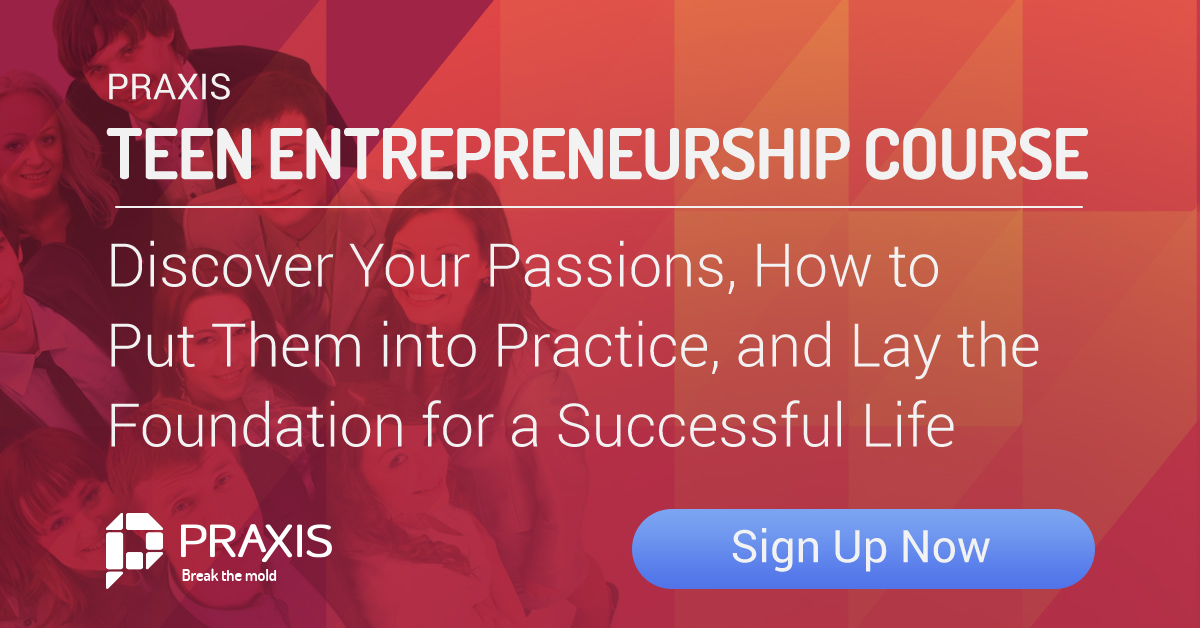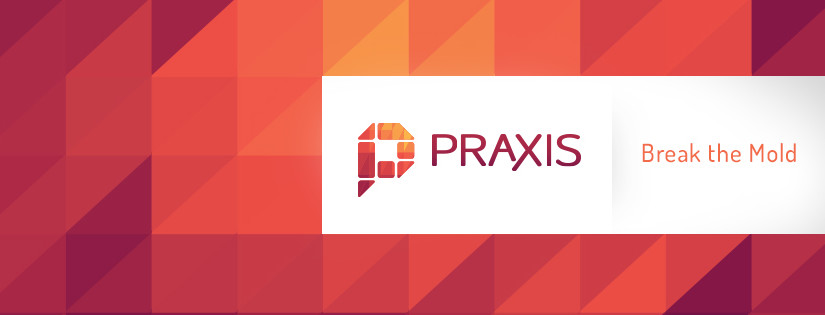Software is eating the world.
Those words, popularized by the creator of the first web browser and now venture capitalist Marc Andreessen, describe the present and foretell the future. First it was industry and ever more advanced machines. Once machines became programmable, software became the most powerful force for progress.
This scares a lot of people. It shouldn’t. Shovels are an improvement over human hands for digging a ditch. Software is an improvement over human minds for solving equations and handling transactions. The future belongs to those who master the uniquely human, not those who fight with software and hardware over rote tasks.
What is the uniquely human? Creativity. Machines can perform but humans are relentlessly creative. We adapt, mimic, adjust, experiment, fail, try again, and reshape our conceptions of the world without any external programmer making it happen. We are the most complex combo of hardware and software on the planet and we can program and reprogram ourselves.
Embracing the future without fear means becoming more human than ever before. It means leaving the grunt work to the tools we make. It means coordinating those tools like a conductor does a symphony. It means, in a word, entrepreneurship.
No longer relegated to those who start a business, entrepreneurship is becoming a necessary way of life. It’s an outlook. You must be the President and CEO of your own firm. You must be the creative force in your world and coordinate with the resources around you.
It’s easier than ever before. The tools are there. All that stops you is an outdated mindset. The key is to break free from old modes of thought and realize the beauty, power, and boundlessness of technology-plus-human enabled progress. What is software but the expression of human ideas in digital form? If we open our minds and engage reality as possibility and play the fear dissipates.
The opening sentence could be restated: Imagination is eating the world. The problem is that few have learned to dream. Or it might be more accurate to say that the natural human propensity to dream has been suppressed. It’s time to unlock it. It’s time for an un-education.
The role of education in society
Prior to the mass schooling movement education was used broadly to describe the acquisition of knowledge and skill useful in achieving goals. Education is a highly cooperative endeavor and critical to the life of any community. We learn how to navigate the world from observing those around us, copying them, getting results and feedback, adjusting, and trying again. In isolation humans are mediocre learners at best. In a vibrant community humans can master almost anything if given the freedom to try.
Observe the first few years of life and it’s easy to see a natural thirst for learning and an entrepreneurial approach to self-education. Babies are wide eyed. They take in everything. Then they test. They try to crawl and talk and play. They repeat over and over. They adapt and try again. They watch those around them and model their successful actions. This process can be called education, but note that no one needs to deliberately plan or structure it. No external incentive or impetus is required for children to acquire the most fundamental and important skills. They want to and they won’t stop trying.
A vibrant community is rich with examples of what to do and what not to do across a variety of ages and levels of expertise. Learners are constantly bumping into new ideas and methods. Ideas are non-scarce goods that fly freely, articulated and unarticulated. Patterns and norms emerge not from the minds of elites but from constant trial and error and observation by each member of the community. What works for one is repeated by another. Paths are worn by walking.
This is not to say no deliberate or planned education takes place. When someone discovers something they love it’s natural to want to learn everything possible about it. Those with particular skill and knowledge and the ability to impart it specialize and exchange what they know for something they value. Teachers and institutions for learning play a role. In a vibrant community they are part of the same trial and error marketplace as everything else. That means no one is forced to engage in any particular form of education, and educators aren’t guaranteed pupils or funding for their efforts.
What is commonly considered education today is really just one very narrow delivery mechanism for learning. This mechanism, called school, has so dominated the education landscape that many have come to completely conflate the two terms. If we are to boldly seize the opportunities of the future, we’ve got to start by rethinking our forms of education. We need to allow for the cultivation of entrepreneurs, not the mechanization we ask of machines.
How school kills entrepreneurship
The dominance of school as education is dangerous. It’s not only that the method of conveying skills and ideas is itself ineffective and inflexible. It’s the effectiveness of school at generating a particular mindset that’s cause for greatest concern. I call it the conveyor belt mindset.
You are plopped onto a production line at whatever stage you’re supposed to be based on arbitrary things like your age, class, and gender. Then you let the belt do the work. By essentially doing nothing but what you’re told, you get handed certificates at each next stage. 18? Unless you did something truly outrageous, here’s your diploma. 22? Here’s your degree. Degree? Here’s your job.
Most people believe this and live it. It’s revealed in the kinds of questions we ask strangers. “What grade are you in?” “What’s your major?” “What kind of job do you have?” If your answer is not the appropriate one for your age and assumed station in life, people worry. “I dropped out of school to do X” is cause for concern to almost everybody, no matter what X is. “I’m a sophomore at university Y” is cause for comfort to almost everybody, no matter what you’re actually doing with your time at Y. So long as you’re at your station, no one much cares if you’re productive, happy, successful, fulfilled, or free.
Parents obsessively check their child against a list of averages on everything from height to reading ability and stress if junior is not “on track.” No one really ever asks who built the track, where it’s going, or whether junior has any interest in arriving there.
Schools are the factories within which the conveyor belt mindset operates. They are structured to breed conformity and obedience. Students don’t even have control over their own schedules or basic necessities like bathroom and meal times. Schools were intended to be and still operate as places that restrict rather than expand the quantity of education in the community. Too many diverse ideas are a threat to efficiency obsessed do-gooders and social planners. Schools produce a more uniform product that can be plugged in like a machine to any part of the stagnant world once imagined by its creators. The conveyor belt produces the very thing that humans can’t compete with machines and software on: rule-following. If your primary skill is repeating known processes and adhering to protocols, you’ll lose to technology every time. Why are we educating humans out of their greatest strength?
The conveyor belt saps creativity and freedom. It is anti-entrepreneurial in every way. It’s not taking you where you want to go. Aggregates are not individuals and your goals and abilities are not definable by summing the abilities and behaviors of everyone your age and dividing by the population size. It’s time to get off.
The way forward
How to create an entrepreneurial education? It’s actually a lot easier than it may seem. Start by quitting. Opt out of the activities and mindsets that are killing you. Take yourself or your kids out of school and let them do and learn whatever they want to in a safe environment. You don’t need anyone’s permission.
Step up and out into the world in which you want to live. Work with interesting people, read interesting books, do interesting things. No need to pay for someone else’s stamp on someone else’s set of activities just because everyone else does. You don’t need a external validation to do what you want. You may choose to get degrees and certificates. You may decide it’s worth the trade-offs. You may enjoy it. Do it if you do, but don’t ever do it, “because you have to.” You don’t have to. Create a way to do what you want without it. It’s harder, but freedom is always harder than the comfort of captivity.
The reason many people fear opting out is because of that paradigm of linear, externally-defined progress. It’s the conveyor belt. It’s time to jump off.
Yes, you want an entire community of free-thinking unschooling entrepreneurs. But you don’t need to wait for society to get there. You can jump off the conveyor belt immediately and create a better way for yourself. Not only do you immediately gain more freedom, doing so is the most likely way for a broader social movement to follow.
It’s scary at first, because your mind is trained to think that progress is defined by moving on the conveyor belt in the only direction it goes. Maybe really special or hard working people go faster, like the people who run up an escalator instead of letting the machine do all the work, but everyone is channeled in the same narrow corral moving in the same direction. That’s not progress.
Progress is moving towards your own goals and desires and becoming more fulfilled as you grow and overcome challenges. There are as many directions as there are people. Once you jump off the conveyor belt, the hardest part is actually discovering what makes you come alive, then being honest and unashamed of what you discover. It’s worth it. You can never start too soon.
The thing is, the mold-breakers who jump the belt don’t struggle any more or less than those who stay on. They have a hard time too. But it’s a different kind of pain. It’s the pain of working to achieve a goal they’re passionate about that has huge rewards when won, not the pain of subjugation to a monotony that brings you nothing in return.
Once you’re off the conveyor belt and seeing a world of possibility you can begin to create the kind of education you want. Education, like entrepreneurship, is not a stage in life but a way of living. You’ve got to become a lifelong learner. Cultivate questions and curiosity. Get comfortable with failure and restarting. Think big thoughts but don’t relegate your creativity to the realm of ideas alone. Test them. Thought experiments are great, but the best philosophers engage in field experiments. Those are the entrepreneurs. The only thing keeping you from joining them is an outdated mindset someone sold you. It works to suffocate the entrepreneurial embers deep within your nature. Fan them back into flame. You’ll light your own way and maybe start a brush fire that spreads to your community and beyond.
If you do, we’ll soon be saying that entrepreneurship is eating the world.
———————
*If you are a teen or you have a teen that’s interested in entrepreneurship, creative thinking, and out of the box living, check out the Praxis Teen Entrepreneurship Course!

Like this:
Like Loading...




